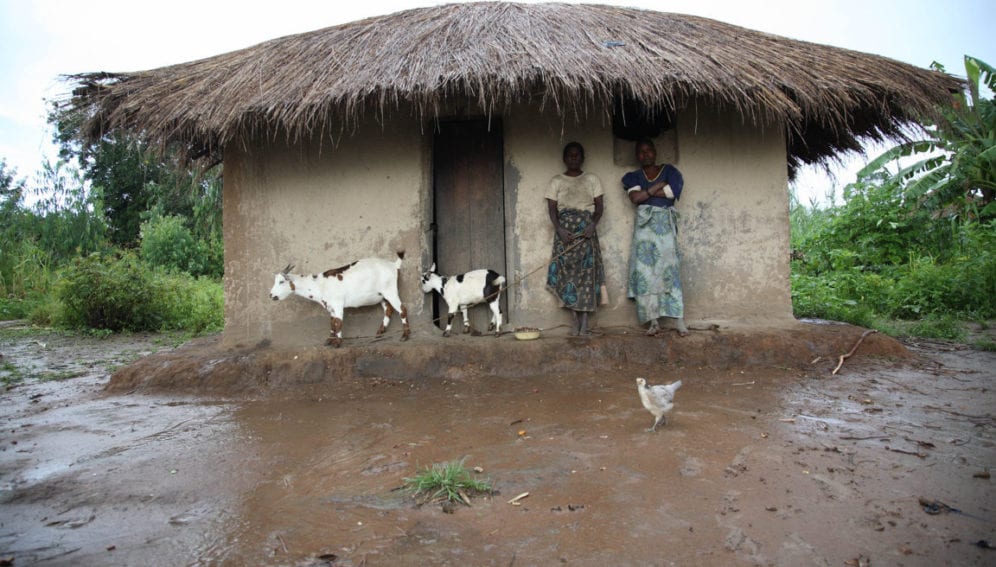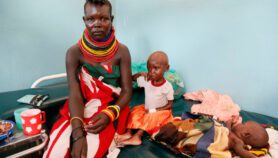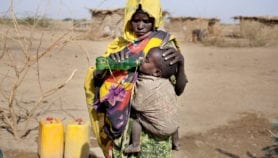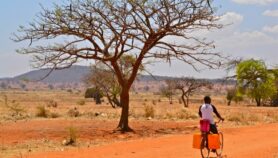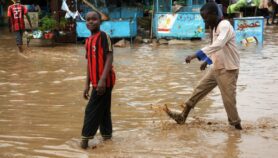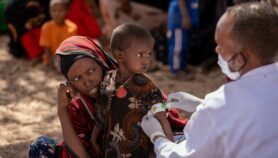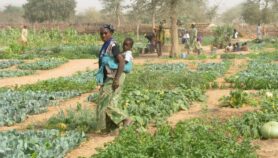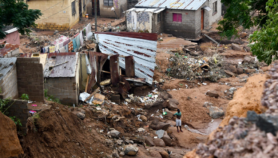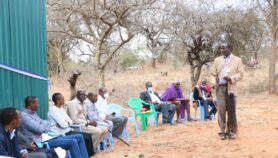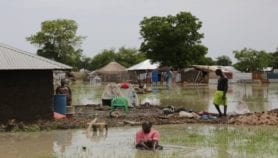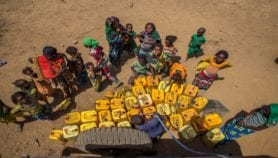By: Linda Nordling
Send to a friend
The details you provide on this page will not be used to send unsolicited email, and will not be sold to a 3rd party. See privacy policy.
An African flood forecasting system could help mitigate suffering from catastrophic floods, writes Linda Nordling.
Last month heavy rains caused rivers in Malawi and Mozambique to burst their banks, inundating vast tracts of land. By the end of January more than 200 people had died in the raging waters, and hundreds of thousands had been displaced, according to media sources.
“Accurate flood forecasts could have reduced the humanitarian impact of the floods by enabling evacuation of those at risk or by helping aid organisations prepare their on-the-ground assistance.”
Linda Nordling
Accurate flood forecasts could have reduced the humanitarian impact of the floods by enabling evacuation of those at risk or by helping aid organisations prepare their on-the-ground assistance.
To benefit from such technology, however, African countries need to put in place emergency plans for flooding—something that Malawi didn’t seem to have last month.
Learning from experience
An African Flood Forecasting System (AFFS) is currently at a prototype stage of development at the Italy-based Joint Research Centre, the European Commission’s in-house research institute.
The project draws on JRC’s experience from developing the European Flood Awareness System (EFAS) — fully operational since 2012 — and the Global Flood Awareness System (GloFAS), which has provided daily preoperational forecasts since 2011.
These systems base their forecasts on indicators such as rainfall data, national weather forecasts and information on river flow. The hydrological model of AFFS has been calibrated on available data on African river basins to give more precise temporal and spatial resolution than the existing global forecasting systems.

Credit: G.M.B. Akash / Panos
However, the availability of data on African hydrological systems remains a challenge. The prototype AFFS relies on information from the Germany-based Global Runoff Data Centre, which has mainly historical data, not real-time data.
Remote monitoring of water levels and river flows in near real-time is possible using satellites, but such measurements can be associated with a high level of uncertainty.
Refining the model
Through AFFS, scientists hope they will be able to improve the detail of the forecasts for future flooding events in Africa. But first it needs to be improved.
Last year JRC published data from an experiment recreating historical flood data using the prototype.[1]Historical meteorological and hydrological predictions from the year 2003 were fed into the system, and compared with the historical records of flood events from that year.
“The contributions of African policymakers and aid workers will be essential for the successful operationalisation of the AFFS.”
Linda Nordling
The experiment found that AFFS detected over two-thirds of the reported flood events of that year correctly. It was particularly good at predicting river flooding of longer than a week’s duration affecting areas larger than 10,000 square kilometres. Importantly, the system was able to predict big flood events in river systems that lacked in-situ meterological stations.
However, AFFS’ ability to predict small-scale, short flood events was found to be limited.
In-field testing
The need for improved calibration of African forecasts was highlighted when the United Nations World Food Programme asked the Global Flood Partnership, a cooperation framework established by JRC, for help during the Malawi floods.
Although the flooding was already a fact, the UN agency wanted a forecast as to whether the situation would worsen or improve. Through this information it would then be able to plan its delivery of food aid to stricken people in the country.
The partnership responded to the requests with forecasts from GloFAS and maps from satellite data. GloFAS (which, remember, is a forerunner of the African system under development) predicted increased risk for flooding, but was unable to pinpoint the exact location of flooding events.
The next steps are now to refine the AFFS model and calibrate it using remote sensing satellite data. It is also high time to bring in more researchers, weather experts and disaster aid agencies working in Africa.
The JRC is in the process of looking for African partners for testing the system and running it pre-operationally, says Jutta Thielen-del Pozo,who leads the coordination and development of EFAS. It expects to do this in partnership with continental bodies such as the African Union or the Monitoring for Environment and Security in Africa programme, which coordinates earth observation efforts in Africa to monitor environmental and security developments.
Political will needed
The contributions of African policymakers and aid workers will be essential for the successful operationalisation of the AFFS.
Officials from Mozambique say that the country’s flood plan from 2014 helped it mitigate some of the worst effects of the disaster.
There has been speculation in the media that Malawi was so badly affected due to a lack of preparedness. But Malawi’s officials deny this. Instead, they say, the problems were a lack of resources and bad weather limiting the rescue effort in the early days of the flood.
Regardless of who is right, last month’s loss of lives and property will add urgency to the development and resourcing of national disaster plans in Africa. A pan-African early flood warning system is a great resource to be able to add to such plans, and therefore it deserves support and buy-in from African governments and aid agencies.
Journalist Linda Nordling, base in Cape Town, South Africa, specialise in African science policy, education and development. She was the founding editor of Research Africa and writes for SciDev.Net, Nature and others.
This article has been produced by SciDev.Net's Sub-Saharan Africa desk.
References
Vera Thiemig and othersA pan-African flood forecasting system (Hydrology and
Earth System Sciences Discussions (2014)


